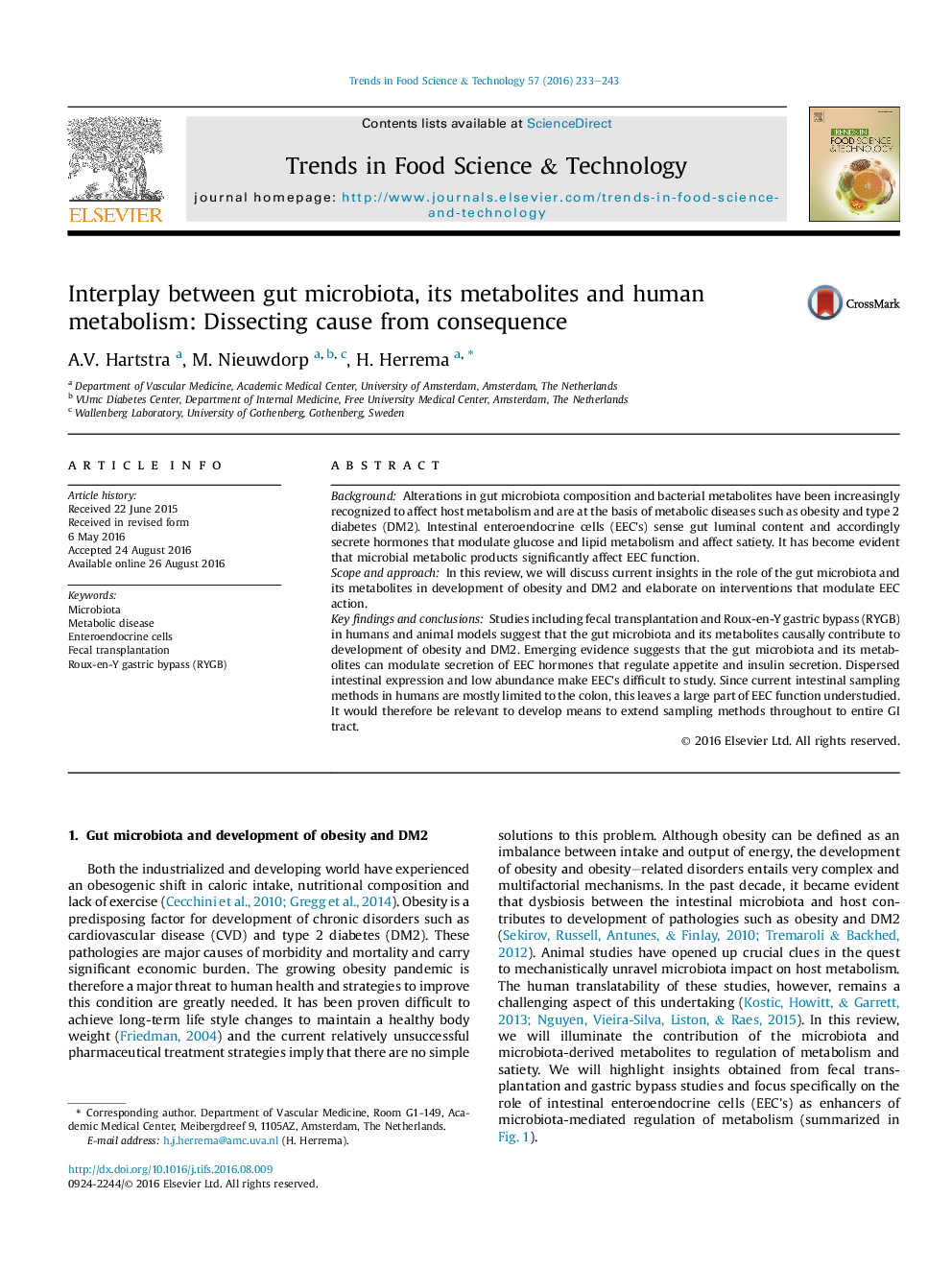| Article ID | Journal | Published Year | Pages | File Type |
|---|---|---|---|---|
| 5523825 | Trends in Food Science & Technology | 2016 | 11 Pages |
â¢Gut microbiota contributes to development of obesity and DM2.â¢Gut microbiota can regulate enteroendocrine cell activity.â¢Fecal transplantation provides powerful means to treat obesity and DM2.
BackgroundAlterations in gut microbiota composition and bacterial metabolites have been increasingly recognized to affect host metabolism and are at the basis of metabolic diseases such as obesity and type 2 diabetes (DM2). Intestinal enteroendocrine cells (EEC's) sense gut luminal content and accordingly secrete hormones that modulate glucose and lipid metabolism and affect satiety. It has become evident that microbial metabolic products significantly affect EEC function.Scope and approachIn this review, we will discuss current insights in the role of the gut microbiota and its metabolites in development of obesity and DM2 and elaborate on interventions that modulate EEC action.Key findings and conclusionsStudies including fecal transplantation and Roux-en-Y gastric bypass (RYGB) in humans and animal models suggest that the gut microbiota and its metabolites causally contribute to development of obesity and DM2. Emerging evidence suggests that the gut microbiota and its metabolites can modulate secretion of EEC hormones that regulate appetite and insulin secretion. Dispersed intestinal expression and low abundance make EEC's difficult to study. Since current intestinal sampling methods in humans are mostly limited to the colon, this leaves a large part of EEC function understudied. It would therefore be relevant to develop means to extend sampling methods throughout to entire GI tract.
